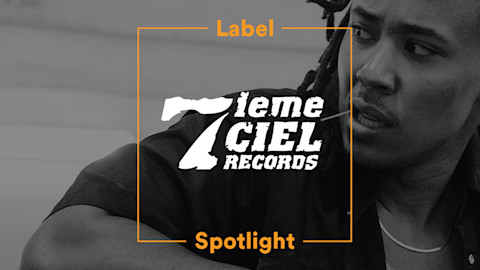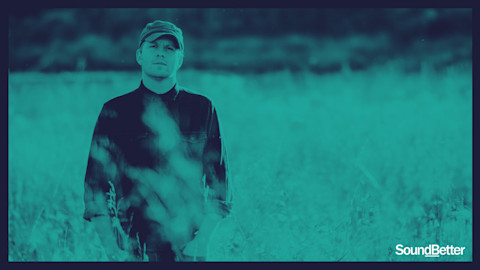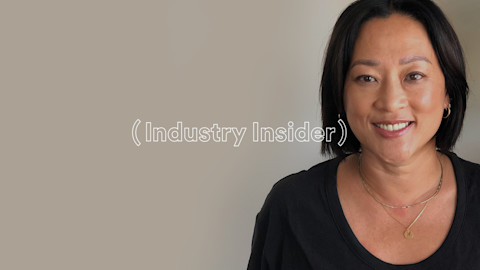The leading force in Quebec hip-hop is now reaching international audiences.
In the nearly 50 years since hip-hop’s beginnings, artists far from the Bronx have combined beats and rhymes in ways no originator could have ever predicted, with new permutations in every corner of the globe. Yet even the most avid scholars of the form might not know that the freshest mutation is happening just a few hundred miles north of the blocks once rocked by DJ Kool Herc.
Quebec hip-hop, or rap québ, has become a dominant force in the French-speaking Canadian province’s vibrant music scene. While homegrown rappers used to be more imitative of their heroes in the US and France, artists like Dramatik, Koriass, and FouKi now brandish a sound and style that truly reflects their culture, from the influence of the province’s African and Caribbean communities to the use of the linguistic mish-mash Canadians know as franglais.
Since 2003, the label Disques 7ième Ciel—which translates to 7th Heaven Records in English—has been a crucial driver of rap québ’s rise. We spoke with founder Steve Jolin to find out how francophone hip-hop in Quebec came of age and why it’s catching on with listeners who don’t know Céline from poutine.
The northern beginnings
While francophone rappers had some local success by mimicking the styles of their foreign peers, it wasn’t until the 2000s that an authentically Quebecois sound took shape. “There weren’t many rappers who used Quebec slang or had a Quebec identity,” Jolin says. “Most would rap with a French accent because our influence was coming from France.”
Along with Dubmatique, Quebec’s first platinum-selling hip-hop act, Jolin cites Sans Pression and Yvon Krevé as MCs who forged the way for rap québ at the century’s start. “This is where the hip-hop scene took off because people were like, ‘Hey, we can rap like this—this is us,” he says.
Around the same time, Jolin was getting his own rap career going under the moniker Anodajay. But because he lived far from Montreal and Quebec City in the small northern town of Rouyn-Noranda, he was an outsider to the cities’ underground hip-hop scene. “There I was, up in the woods, saying, ‘I’m here, I exist, I’m a rapper, too!’” Jolin laughs. “It was hard to build the cred, but I’m hard-headed.”
Hooking up with a small distributor, he founded 7ième Ciel, a reference to his birthdate of 7/7/1977. The label’s first release was Anodajay’s debut 2003 album, Premier VII, and he followed that with Septentrion three years later. Though 7ième Ciel was still a one-artist label, Jolin began enlisting help for publicity and radio, and a more professional operation emerged. “This is where I decided to make it a living,” he says.
Steve Jolin, Photo by Sandra Raymond
The ascension of rap québ
7ième Ciel’s evolution from a one-MC label to rap québ powerhouse began when Jolin met fellow northerner Samian, a member of the Abitibiwinni First Nation who raps in both French and Algonquin. The momentum created by his 2007 debut, Face à soi-même, continued when 7ième Ciel’s roster expanded to include two Montrealers. His third signing was Koriass, who came to prominence as an online battle champion. The next was Dramatik, a founder of the respected group Muzion, For Jolin, the new additions proved “we weren’t only an up-north label interested in up-north artists.”
At the same time, Jolin was and is “very, very selective” when it comes to 7ième Ciel’s acts. “Many labels sign a lot of artists to build a catalog but that’s not my thing,” he says. “I always have to feel the music first, and it’s got to be good for the culture.”
That was his mindset when he signed Manu Militari, an artist whose politically and socially charged tracks and videos earned controversy, critical acclaim, and, for his 2013 LP Marée humaine, the hip-hop album of the year at the ADISQ Awards, Quebec’s annual music honors. With sales of nearly 25,000 copies despite the lack of radio support, Jolin says Miltari’s album helped change the resistance to homegrown hip-hop in the province’s musical mainstream.
“We could sell out shows in a lot of towns in Quebec,” says Jolin. “People knew the rappers and the lyrics, and we were selling some albums even though we had no mainstream radio. There was a small community that grew from that. I knew it was going to take off at some point because every album we made was always better: Producers got better, rappers got better, and the identity was getting where it needed to be.”
Success at home and buzz abroad
Now, finally, rap québ is the phenom Jolin knew it could be. “I’ve been in industry meetings for years and years, saying, ‘Hip-hop is coming,’” he says, laughing. “People were like, ‘Yeah, yeah,’ but I truly believe that our artists—and not only my artists—are the biggest stars in Quebec right now.”
Once an outlier, 7ième Ciel is now a pace-setter as North America’s biggest francophone rap label, and he’s not looking to compete with others by signing anyone and everyone. “Labels that were always into rock and grunge music and all that, now they’re trying to get their hip-hop sub-label and sign artists,” he says. “I go organically and let things flow. You need to be selective and work with what you got.”
It’s paying off beyond French Canada, as proven by the upward trajectory of younger acts like FouKi and Anglophone Montrealer Zach Zoya, as well as the continued preeminence of 7ième Ciel vets like Koriass and the wildly creative Alaclair Ensemble. Even The New York Times recently took notice of the growing cultural impact of rap québ and the many rising franglais stars.
“When we do shows with the biggest superstars out of France and Belgium, they tell us, straight up, they’re looking at what we’re doing. We’re becoming a big influence for them because we’re so close to the US and there’s a sound we have here that they don’t, necessarily,” Jolin says. “We’re proud of it. It’s always fun to have people noticing it outside of Quebec.”
—Jason Anderson
Popular Stories
video
How Julia Wolf Made It




